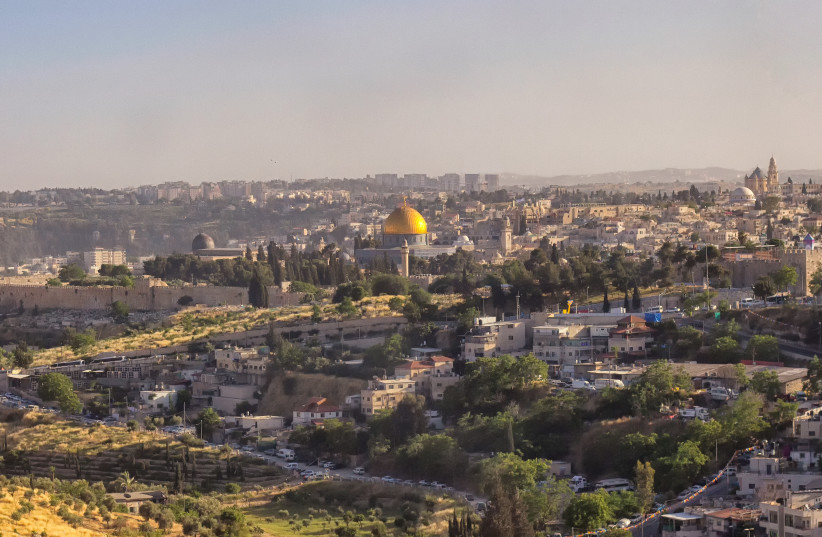Papua New Guinea will join a handful of countries to open an embassy in Jerusalem, a decision long sought by pro-Israel church groups in the deeply Christian Pacific nation, and as Prime Minister James Marape seeks to boost foreign investment.
Marape has pledged to voters to make Papua New Guinea (PNG), a resource-rich but largely undeveloped nation north of Australia, the "richest black Christian nation."
He previously told parliament Israel was important because of its agriculture technology, however church groups have long lobbied for a Jerusalem embassy.
Marape announced he would travel to Israel for the embassy opening on Sept. 5 in a speech on PNG's national holiday for prayer, Aug. 26, when he also said a law would be introduced to officially declare PNG a Christian country.

A delegation of pastors is traveling to Israel for the opening, PNG government and church officials said.
"We have to have the relationship with Israel. This is what the people have been dreaming of," Pastor Peter Harut, PNG delegate for International Christian Embassy Jerusalem, a Christian Zionist group, said in a telephone interview.
The majority of countries with an official diplomatic presence in Israel have their embassies in Tel Aviv, with only the United States, Kosovo, Guatemala and Honduras basing theirs in Jerusalem.
Citing Jewish biblical roots, Israel deems Jerusalem its indivisible capital. That status has not won wide recognition abroad, and Palestinians want the east of the city - which Israel captured in the Six-Day War, and is the site of major Jewish, Christian and Muslim shrines - as capital of their hoped-for future state.
A Florida-based Zionist group with pastors in PNG, United Nations for Israel, wrote to Marape to congratulate him.
In the letter viewed by Reuters, the group's president Dominiquae Bierman, who has visited PNG several times to preach, said she was "very involved in bringing the Biblical Message to your nation about the importance of honoring Israel."
"This includes positioning the embassies of all the nations in the eternal capital of Israel, Jerusalem," Bierman said.
Foreign policy agenda
Israel has yet to formally announce the embassy opening, but an Israeli official told Reuters Marape's visit would be on Sept. 4-6, with Israeli Prime Minister Benjamin Netanyahu attending the Sept. 5 opening.
The visit will allow Netanyahu to burnish his statesman credentials amid diplomatic deadlock on other fronts for his hard-right government.
An Israeli official who requested anonymity said the PNG embassy would have 200 square meters of floorspace and can expect to get a discount of abound 70% on municipal property tax as part of standing policy meant to draw embassies and corporations to Jerusalem.
The office space was previously used by an Israeli government ministry in south Jerusalem, next to the city's biggest mall. An assessment of a property of comparable size in the same building suggests PNG will pay a monthly rent of about $20,000.
PNG-Israel Jewish Council chairman, businessman Douveri Henao, will attend the ceremony, he said on social media.
Henao is on PNG's six-person Foreign Policy White Paper drafting team, tasked with "shaping Papua New Guinea's foreign policy agenda," Marape's office said in a statement last month.
The council said in January a close relationship with Israel was "essential" for PNG's economic goals in agriculture, health and technology, and a mission in Jerusalem recognized "Israel's claim to Jerusalem as its capital based on biblical and secular history."
Marape is seeking to widen PNG's international links, and this year hosted visits by the leaders of India, France and by the US secretaries of state and defense.
